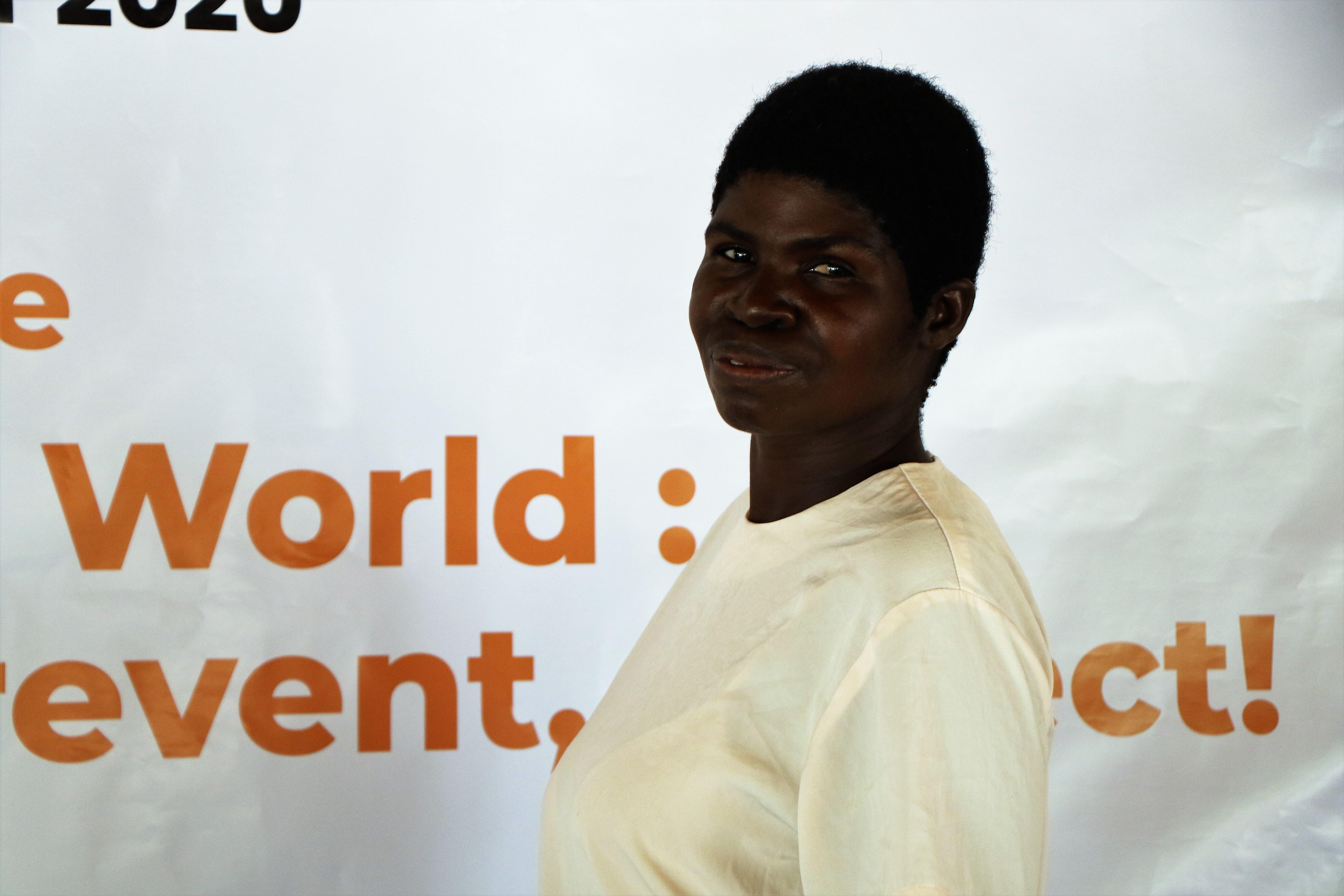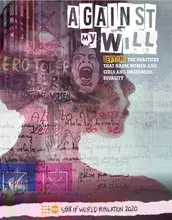Maun, BOTSWANA- "Don’t be fooled by an apology and promises to change, because no one masters the art of apologizing better than an abusive man,” warned 37 year old Lebonang Molaletsi, a survivor of intimate partner violence.
Having recently been released from a women’s shelter, Lebonang feels she is ready to talk about the violence and abuse she endured in her relationship. When she met her boyfriend in November 2019, she never imagined that she could be the victim of abuse, as he was a sweet and loving partner to both her and her two children; a 22 year old boy and 15 year old girl.
She knew her partner was an occasional drinker when they met, but never imagined him being abusive. Things started turning sour a couple of months into the relationship. Whenever he returned from his drinking, he would subject her to physical abuse, often in front of her children and her grandmother.
“He would be a respectful and loving partner when sober but he would turn into a different person after drinking. He would accuse me of cheating and eventually beat me until I lose consciousness,” said Lebonang.
But Lebonang would forgive him immediately whenever he apologized. She refused to report him to the police at first, resorting to family mediation.
“It was a new relationship and I hoped he would change after the family interventions. And the way he apologized and promised to change sounded very genuine, so I always felt he deserved another chance,” she said.
When she fell pregnant, she believed things would change. Things did change and took a turn for the worst. Recounting her horrific experience, Lebonang revealed that one day her partner came back home drunk, and accused her of disrespecting him by cheating on him while pregnant with his child. He threatened to kill her and her whole family.
“He beat me with a rod on the head and kicked me on my belly so bad that I woke up in the hospital. I did not do all that he was accusing me of,”
According to Lebonang, this was a turning point for her. It is after the incident that she decided to report the matter to the village traditional leader (kgosi) who subsequently referred her to the police. The police took her to Women Against Rape (WAR) in June 2020, where she was accommodated in a survivors’ shelter to recover. Unfortunately while at the shelter, her partner raped her 15 year old daughter, who joined her a month later at the shelter to seek refuge.
“I blame myself for bringing him into their lives and I will never forgive myself regarding what happened to my daughter. It will forever stay with me,” she says with a sombre face.
Psychosocial Support
Lebonang and her daughter went through psychosocial therapy at the shelter. She says these sessions have brought her some healing, changed her perspective and restored her dignity. She hopes by sharing her story, other women will report and walk out of abusive relationships while they still have time because it could save more lives.
“Not reporting your case is a big mistake, I now know better,”
Slow Justice System
Although she has managed to free herself from the claws of gender-based violence, she lamented that she lives in fear as she doesn not know the status of her case. She is worried that the justice system is too slow, because all she wants is for justice to prevail so that this man can be tried and convicted for the heinous crimes he has committed against her and her daughter.
“I am not free. I am always in fear as this man can come and kill me anytime. I don't know his whereabouts, but people tell me they see him around,”
Gender Based Violence in Botswana has become a scourge for mostly women and children. According to the 2018 Botswana national Relationship Study, over two thirds of women in Botswana (67%) have experienced some form of gender violence in their lifetime including partner and non-partner violence, with almost half (44%)of men admitting to have perpetrated violence against women. Fifteen percent (15%) of women who have ever been pregnant experienced GBV during pregnancy and one in nine women who experienced rape reported the incident to the police suggesting that that levels of GBV are far higher and many cases often go unreported.
UNFPA Botswana supports WAR, which empowers survivors of Gender Based Violence through psychological therapy. UNFPA is one of the UN's lead agencies working to further gender equality and women’s empowerment. UNFPA’s work in ending GBV focuses on supporting and collaborating with the Government of Botswana and other non-state partners such as CSOs to strengthen policy and advocacy action to legal and policy reforms, strengthen GBV research & data systems to support development of evidence-based programmes, enhance capacity of services for effective and quality GBV services, educate the public on GBV and promote involvement of men and boys in prevention of GBV and in accessing SRH services.



